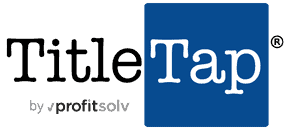In today’s digital-first world, your website is often the first (and most lasting) impression clients have of your business. But beyond how it looks and performs, there’s something even more important: how secure it is. For industries that handle sensitive client information, such as law firms and title companies, website security and compliance aren’t optional — they’re essential.
Cyber threats are becoming more sophisticated, and data breaches can devastate a company’s reputation, not to mention lead to costly legal consequences. The good news? With the right security practices and compliance measures in place, your business can protect both its data and its credibility.
We break down what every company should know about website security and compliance, and how to stay ahead of evolving risks.
Why Website Security Matters More Than Ever
A website isn’t just a marketing tool anymore. It’s a central hub for client communication, data collection, and brand trust. When someone visits your site and fills out a form, schedules a consultation, or pays a bill, they’re entrusting you with their private information.
That’s why even a small vulnerability can have big consequences. A single malware infection or phishing attack could expose client data, compromise passwords, or crash your entire site. In highly regulated industries like real estate, law, and finance, this doesn’t just cause operational headaches, it can violate privacy laws and damage hard-earned trust.
Clients expect your website to be both professional and secure. In fact, 84% of consumers say they would abandon a purchase or transaction if they felt a website wasn’t secure. Security builds confidence. When your site is protected, clients feel safer doing business with you.
Common Security Risks for Business Websites
Hackers aren’t just targeting large corporations — small and midsized businesses are frequent victims because they often lack dedicated IT resources. Some of the most common website vulnerabilities include:
Outdated Software: Failing to update your content management system (CMS), plugins, or themes can leave your site open to known exploits.
Weak Passwords or Access Controls: If your admin accounts don’t use strong, unique passwords or multi-factor authentication, you’re essentially leaving the front door unlocked.
Unsecured Data Transfers: Without proper encryption (like SSL certificates), data entered on your website can be intercepted during transmission.
Phishing or Spoofing Attacks: Fraudsters may clone your site or send fake emails pretending to be from your domain, tricking clients into sharing sensitive information.
Malware and Ransomware: Malicious software can infect your website, steal information, or lock files until a ransom is paid.
Every one of these threats can be mitigated with proactive maintenance, smart access policies, and modern website hosting standards — but it takes ongoing attention.
Compliance: Protecting Clients and Your Business
Beyond basic security, companies must also consider compliance — adhering to regulations that govern data privacy and online accessibility.
For title companies, this includes rules from ALTA’s Best Practices, which outline procedures for protecting non-public personal information (NPI). For law firms, compliance may extend to state bar regulations and data protection laws like the General Data Protection Regulation (GDPR) or the California Consumer Privacy Act (CCPA).
Even if your firm doesn’t directly fall under these laws, following their guidelines is a smart business move. Clients are increasingly aware of how their data is handled and prefer to work with companies that prioritize privacy.
Compliance also includes ADA accessibility — ensuring that your website is usable by all visitors, including those with disabilities. A compliant website not only broadens your reach but also protects you from potential legal exposure.
8 Steps to Optimize Your Website
Your website is often your first impression, make it a good one. A slow, outdated, or poorly optimized site can quietly cost you leads, credibility, and client trust.
Building a Secure and Compliant Website
A secure website starts with a solid foundation. Whether you’re launching a new site or managing an existing one, these are the most important areas to address:
1. Use HTTPS and SSL Certificates
If your website still uses “http” instead of “https,” it’s time to make the switch. An SSL (Secure Sockets Layer) certificate encrypts the data exchanged between your site and visitors, protecting sensitive information like passwords, financial details, and contact forms. It’s also a key ranking factor in Google’s algorithm, meaning secure sites are more likely to appear higher in search results.
2. Keep Software and Plugins Updated
Hackers love outdated software. Regular updates patch vulnerabilities and strengthen your defenses. If you’re using a platform like WordPress, make sure all plugins and themes are updated automatically or reviewed at least once a month.
3. Limit Access and Strengthen Passwords
Only give administrative access to users who truly need it. Use strong passwords (ideally a mix of letters, numbers, and symbols) and implement multi-factor authentication wherever possible.
4. Regularly Back Up Your Website
Even with strong protections, issues can arise. Automated backups ensure you can quickly restore your site if it’s compromised. Your hosting provider should offer daily or weekly backups as part of its service.
5. Enable Firewall and Malware Scanning
A web application firewall (WAF) filters malicious traffic before it reaches your website, blocking common attacks. Pair this with real-time malware scanning and automatic alerts for suspicious activity.
6. Audit Your Privacy Policies and Terms of Use
Clear, up-to-date privacy policies aren’t just for compliance — they help establish trust. Review your data collection and cookie usage policies to make sure they’re transparent and accurate.
The Role of Ongoing Monitoring and Maintenance
Website security and compliance are not one-time tasks. They require continuous monitoring. Cyber threats evolve daily, and what’s secure today may not be tomorrow.
That’s why businesses benefit from having a partner who can monitor performance, perform updates, and handle issues before they escalate. Regular security audits, vulnerability scans, and accessibility reviews ensure your site stays compliant and protected.
At TitleTap, every website we build includes enterprise-grade hosting, SSL certificates, and continuous monitoring — so clients can focus on running their business, not managing their website security.
The Connection Between Security and SEO
Security doesn’t just protect your website; it also impacts your search engine rankings. Google rewards websites that are secure, fast, and user-friendly. If your site is hacked or flagged as “unsafe,” it can quickly drop in rankings or even be removed from search results.
Additionally, accessibility and mobile responsiveness — both compliance-related factors — influence how search engines evaluate your site’s quality. In short, investing in a secure, compliant website pays off in better visibility and more client trust.
The Ultimate Guide to Local SEO for Title Companies
Local SEO is an excellent way to grow your business. Learn how to master the art of local SEO to connect with more local leads that convert into satisfied clients.
How TitleTap Helps Keep You Protected
At TitleTap, we understand that for title companies and law firms, security and compliance aren’t just checkboxes — they’re business-critical priorities. That’s why every TitleTap website includes:
- Secure hosting with SSL encryption and firewalls
- Automatic software updates to patch vulnerabilities
- ADA accessibility features for compliance and inclusivity
- Daily backups and uptime monitoring for reliability
- Turnkey maintenance so your team doesn’t have to manage the technical side
Plus, every three years, we offer a free website redesign ensuring your site stays up-to-date not only in looks and functionality but also in security standards.
Get Peace of Mind Through Proactive Protection
Cybersecurity and compliance may not be the most glamorous parts of running a business, but they’re among the most important. A secure, compliant website does more than protect data — it strengthens your reputation, builds client confidence, and supports long-term growth.
As technology evolves, so do the risks. That’s why it’s crucial to partner with a provider who understands your industry’s unique challenges and stays ahead of changing standards.
Ready to ensure your website is secure, compliant, and built for growth? Let TitleTap handle the heavy lifting — from compliance and hosting to maintenance and redesigns. Schedule a demo today to see how we can protect and power your digital presence.

Learn How TitleTap Can Craft Tailored Strategies for Your Title Company’s Success
Discover the difference our professionals can make with proven tactics and strategies tailored to your title company’s unique needs.

